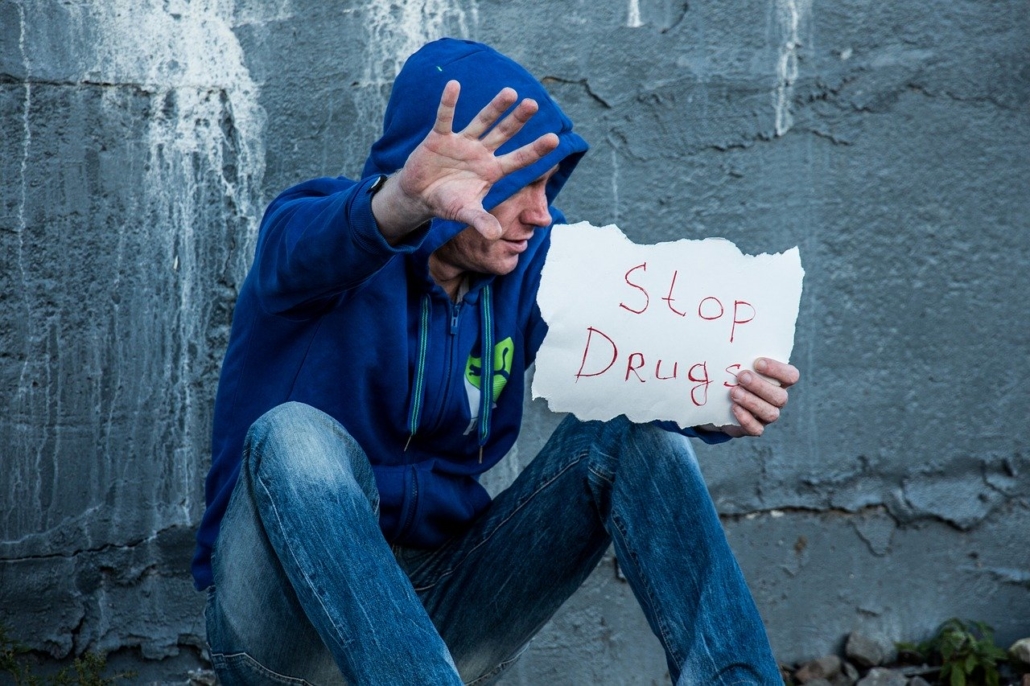To overcome addiction and prevent a relapse, make sure never to skip your treatment programs, 12 step groups, post-rehab therapy, and other rehab aftercare services. But, on the other hand, never let your guard down, thinking you are fully recovered can make it easy to back to old habits and patterns (which eventually lead towards a relapse).
What is Rehab Aftercare?
Addiction treatment will be a lifelong journey, most especially once you recover and reenter the world. As it is a lifelong process, ongoing maintenance is necessary. If you have been diagnosed with addiction, you will need to continuously treat and manage your life to maintain sobriety and good health. Furthermore, aftercare can take the form of inpatient rehab or intensive outpatient rehab services.
Relapse rates for substance use disorders (40 to 60 percent) are comparable to those for chronic diseases, such as diabetes (20 to 50 percent), hypertension (50 to 70 percent), and asthma (50 to 70 percent). [1] But patients who take advantage of aftercare services experience lower relapse rates than people who do not participate in aftercare programs.


Get Your Life Back
Find Hope & Recovery. Get Safe Comfortable Detox, Addiction Rehab & Mental Health Dual Diagnosis High-Quality Care at the We Level Up Treatment Centers Network.
Hotline (877) 378-4154Types of Rehab Aftercare Services
The most effective rehab aftercare programs are those that are personalized to the individual patient’s needs and circumstances. Rehab Aftercare programs may include 12-step programs and outpatient supports.
12-Step Programs
Twelve-step programs have been around for nearly a century and are a familiar topic within recovery communities. The 12 Steps program for drug abuse is often used alongside formal behavioral therapy and medication-assisted treatment (MAT).
The 12 Steps were designed to help participants achieve and maintain sobriety. Popularized in the early 20th century with the formation of Alcohol Anonymous, the success of the steps program for alcohol addiction led to the creation of its virtually identical counterpart, Narcotics Anonymous.
Regardless of the substance at hand: the purpose of the Twelve Steps is to empower recovering addicts to be introspective and to take responsibility for their actions. In doing so, individuals can learn to identify the source of their substance abuse, triggers, and ultimately, find lasting support in moving past it.
The 12 Steps
- We admitted we were powerless over our addiction—that our lives had become unmanageable.
- Came to believe that a Power greater than ourselves could restore us to sanity.
- Made a decision to turn our will and our lives over tot he care of God as we understood him.
- Made a searching and fearless moral inventory of ourselves.
- Admitted to God, to ourselves, and to another human being the exact nature of our wrongs.
- Were entirely ready to have God remove all these defects of character.
- Humbly asked Him to remove our shortcomings.
- Made a list of all persons we had harmed and became willing to make amends to them all.
- Made direct amends to such people wherever possible, except when to do so would injure them or others.
- Continued to take personal inventory and, when we were wrong, promptly admitted it.
- Sought through prayer and meditation to improve our conscious contact with God as we understood Him, praying only for knowledge of His will for us and the power to carry that out.
- Having had a spiritual awakening as the result of these steps, we tried to carry this message to addicts/alcoholics, and to practice these principles in all our affairs.
The 12 Traditions
- Our common welfare should come first; personal recovery depends upon (AA/NA) unity.
- For our group purpose there is but one ultimate authority —a loving God as He may express Himself in our group conscience. Our leaders are but trusted servants; they do not govern.
- The only requirement for (AA/NA) membership is a desire to stop drinking/using.
- Each group should be autonomous except in matters affecting other groups or (AA/NA) as a whole.
- Each group has but one primary purpose—to carry its message to the addict/alcoholic who still suffers.
- An (AA/NA) group ought never endorse, finance, or lend the (AA/NA) name to any related facility or outside enterprise, lest problems of money, property, and prestige divert us from our primary purpose.
- Every (AA/NA) group ought to be fully self-supporting, declining outside contributions.
- (AA/NA) should remain forever nonprofessional, but our service centers may employ special workers.
- (AA/NA) as such, ought never be organized; but we may create service boards or committees directly responsible to those they serve.
- (AA/NA) has no opinion on outside issues; hence the (AA/NA) name ought never be drawn into public controversy.
- Our public relations policy is based on attraction rather than promotion; we need always maintain personal anonymity at the level of press, radio, and films.
- Anonymity is the spiritual foundation of all our Traditions, ever reminding us to place principles before personalities.
Get Help. Get Better. Get Your Life Back.
Searching for Accredited Drug & Alcohol Rehab Centers Near You? Or Mental Health Support?
Even if you have failed previously, relapsed, or are in a difficult crisis, we stand ready to support you. Our trusted behavioral health specialists will not give up on you. Call us when you feel ready or want someone to speak to about therapy alternatives to change your life. Even if we cannot assist you, we will lead you wherever you can get support. There is no obligation. Call our hotline today.
FREE Addiction Hotline – Call 24/7Short-Term Residential Treatment
Short-Term Residential Treatment Short-term residential programs provide intensive but relatively brief treatment based on a modified 12-step approach. These programs were initially designed to treat alcohol problems, but during the cocaine epidemic of the mid-1980s, many began to treat other types of substance use disorders. The original residential treatment model consisted of a 3- to 6-week hospital-based inpatient treatment phase followed by extended outpatient therapy and participation in a self-help group, such as AA. Following stays in residential treatment programs, individuals must remain engaged in outpatient treatment programs and aftercare programs. These programs help to reduce the risk of relapse once a patient leaves the residential setting. [2]
Outpatient Aftercare Services
Outpatient treatment programs will allow recovery access to group counseling and individual therapy sessions with trained counselors and drug addiction therapists. In group counseling, patients can work with and listen to other people in recovery share their experiences. They can build critical social and coping skills in a safe and supportive group setting, just like with the alumni program. Individual therapy is essential in helping patients with comorbid conditions manage their drug addiction and maintain sobriety.
People who’ve struggled with drug addiction may also face legal hurdles that can be incredibly distressing to navigate. Stress and worry can be significant triggers for drug use and can cause someone to relapse. Given that, aftercare programs can give patients access to the following resources which can help them live a drug-free, less stressful life:
First-class Facilities & Amenities
World-class High-Quality Addiction & Mental Health Rehabilitation Treatment
Rehab Centers TourRenowned Addiction Centers. Serene Private Facilities. Inpatient rehab programs vary.
Addiction Helpline (877) 378-4154Proven recovery success experience, backed by a Team w/ History of:
15+
Years of Unified Experience
100s
5-Star Reviews Across Our Centers
10K
Recovery Success Stories Across Our Network
- Low Patient to Therapist Ratio
- Onsite Medical Detox Center
- Comprehensive Dual-Diagnosis Treatment
- Complimentary Family & Alumni Programs
- Coaching, Recovery & Personal Development Events
Additional Aftercare Programs
- Career Counseling and Support
- Legal Advice and Support
- Long-Term Support (through major, life transitions)
- Case Management
- Substance Monitoring
- Coaching and Goal-Setting
- Community Building
- Academic Support
- Financial Planning and Budgeting Support
Aftercare usually entails less hands-on, direct support from clinicians and doctors, unlike during the withdrawal and detox phase. However, once a patient safely detoxes from drugs, they need help, encouragement, and advice on maintaining sobriety from experienced therapists, counselors, and social workers.
These programs can assist them with obtaining legal counsel, budgeting, and getting a job that will support them outside of the treatment facility. Less stress, fear, and uncertainty with how they will manage outside treatment can significantly reduce a patient’s chances of relapse.
Learning how to remain sober is a process. Although treatment begins after detox, it may continue as the person knows more about the causes of their addiction and how to prevent relapse. With the thought that relapse can certainly happen, the purpose of aftercare is to get back on the road to recovery as quickly as possible.
Additional Services
Achieving long-term sobriety is a huge accomplishment. But the treatment does not stop after you successfully detoxed from drugs. Aftercare is a type of ongoing treatment service given to people recovering from drug addiction after they achieve initial sobriety. Other forms of aftercare may include the following:
- Recovery Housing or Sober Living
- Coaching
- Check-Ins and Online Groups

- Recovery Community Centers
- Clubs or Cafes for Recovery
World-class, Accredited, 5-Star Reviewed, Effective Addiction & Mental Health Programs. Complete Behavioral Health Inpatient Rehab, Detox plus Co-occuring Disorders Therapy.
CALL (877) 378-4154End the Addiction Pain. End the Emotional Rollercoaster. Get Your Life Back. Start Drug, Alcohol & Dual Diagnosis Mental Health Treatment Now. Get Free No-obligation Guidance by Substance Abuse Specialists Who Understand Addiction & Mental Health Recovery & Know How to Help.
Aftercare Services of We Level Up New Jersey
At We Level Up New Jersey, we passionately believe that the best chances of success at addiction recovery are when clients are given the right tools. But that is still only half of the battle; making those resources accessible and convenient plays a significant role in the likelihood of proper recovery. As such, we are pleased to offer our aftercare services and treatment programs (individual counseling, group therapy, and 12-step program meetings) at the same facility. This means less headache and hassle for our clients, who can spend more time focusing on getting better.
If you or a loved one is dealing with an addiction to alcohol or other drugs, especially if you have experienced multiple relapses in the past, then look no further. With an incredible success rate for long-term recovery, We Level Up Treatment Centers including New Jersey We Level Up offers one of the most comprehensive addiction recovery programs available in The United States, bringing hope to families every day.
We provide treatment services to all local communities including but not limited to New Jersey. However, we also serve clients from around the United States who are in need of the best drug and alcohol treatment options that best meet their needs. Particularly for individuals who have experienced multiple relapses in the past, our comprehensive program is an obvious choice.
Looking for Immediate Help? Speak with one of our 24/7 Addiction Advisors.
Experience Transformative Recovery at the We Level Up Treatment Center.
See our authentic success stories. Get inspired. Get the help you deserve.



Start a New Life
Begin with a free call to an addiction & behavioral health treatment advisor. Learn more about our dual-diagnosis programs. The We Level Up treatment center network delivers various recovery programs at each treatment facility. Call to learn more.
- Personalized Care
- Caring Accountable Staff
- World-class Amenities
- Licensed & Accredited
- Renowned w/ 5-Star Reviews
We’ll Call You
Sources:
[1] Facing Addiction in America – National Center for Biotechnology Information, U.S. National Library of Medicine
[2] Principles of Drug Addiction Treatment Research – National Institute on Drug Abuse